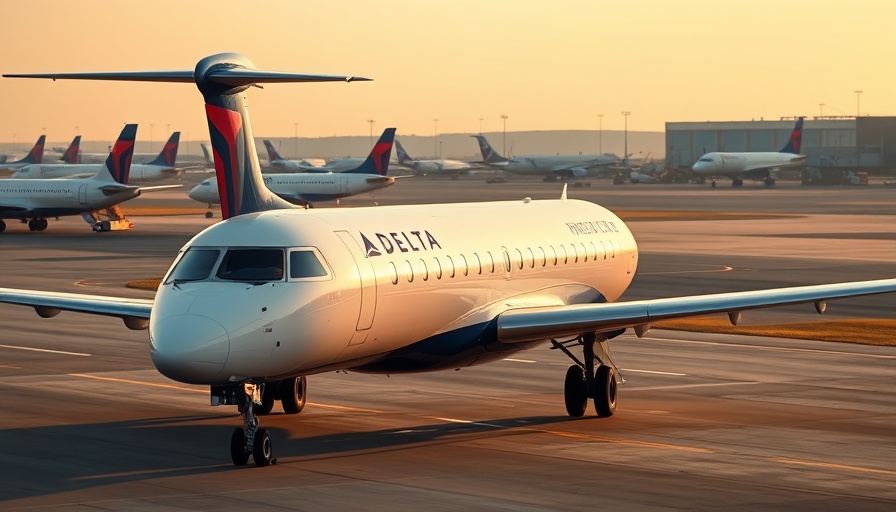
Delta's Grounding of Regional Jets: What You Need to Know
Recently, Delta Air Lines announced significant disruptions to their flight schedules, resulting from the grounding of dozens of its regional jets for inspection. This action is expected to lead to the cancellation of approximately 150 flights, starting Thursday and potentially extending into Friday. A spokesperson for Delta confirmed that the wholly-owned regional subsidiary, Endeavor Air, has temporarily pulled 45 Delta Connection jets out of service to inspect their Wi-Fi systems. While the issue is not related to flight safety, it has nonetheless thrown many travelers' plans into disarray.
Understanding Jet Groundings and Passenger Rights
As Delta works to rectify these disruptions, it's essential for affected passengers to be aware of their rights. Under U.S. Department of Transportation policy, travelers have the option to seek a full refund if they decline alternative travel arrangements provided by the airline. Delta has committed to assisting those whose flights have been canceled, offering accommodations, meal vouchers, and rebooking assistance. Customers are encouraged to reach out directly to Delta's customer service for help, ensuring minimal inconvenience during this time.
The Broader Impact of Air Travel Troubles
The reliance on regional carriers like Endeavor Air is now more pronounced than ever, especially for Delta, which serves numerous small markets through its extensive network. The grounding of these planes highlights the fragility of the travel schedule—an unexpected maintenance issue can ripple through the entire system, impacting thousands of passengers.
Travelers' Perspectives and Emotional Connections
For many travelers, disruptions are not just delays; they can evoke feelings of frustration and uncertainty. Picture planning a long-awaited vacation or an important business trip, only to be informed that your flight is canceled. Passengers rely on predictable travel schedules, and incidents like this can significantly derail their plans, causing stress not only for individual travelers but also for families and business partners awaiting their arrival.
Future Trends: Airlines and Maintenance Protocols
The alarming frequency of issues that arise across airline operations—like those currently facing Delta—could prompt a reevaluation of maintenance protocols industry-wide. More airlines may choose to invest in advanced technology for aircraft systems and enhanced inspection processes to minimize operational disruptions. One potential shift could include more automated systems for monitoring aircraft performance, which could prevent maintenance-related issues from escalating into more disruptive events.
What Travelers Should Consider Moving Forward
Given such events, those planning future air travel should consider the following strategies: always check the status of your flight ahead of time, sign up for alerts from your airline, and familiarize yourself with policies regarding flight cancellations and refunds. Adventurous travelers might also weigh the pros and cons of travel insurance, which could provide additional security in the event of unforeseen cancellations.
Finally, it's advisable to have a flexible travel plan. Flexibility can significantly ease the anxiety of travel disruptions; whether it’s being open to alternative flight routes or adjusting accommodations, adaptability is key. As Delta grapples with this challenge, travelers should remain informed and proactive to navigate the complexities of air travel.
If you find yourself affected by flight cancellations or delays, do not hesitate to leverage your rights as a passenger and seek assistance from Delta's customer service. Understanding the situation provides the clarity needed to manage travel disruptions effectively.
 Add Row
Add Row  Add
Add 



 Add Row
Add Row  Add
Add 
Write A Comment